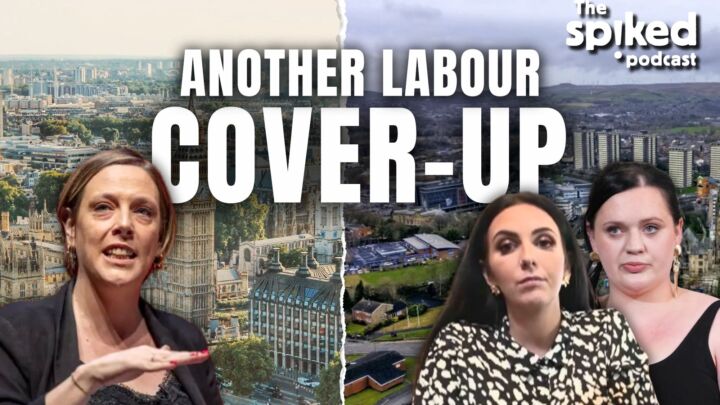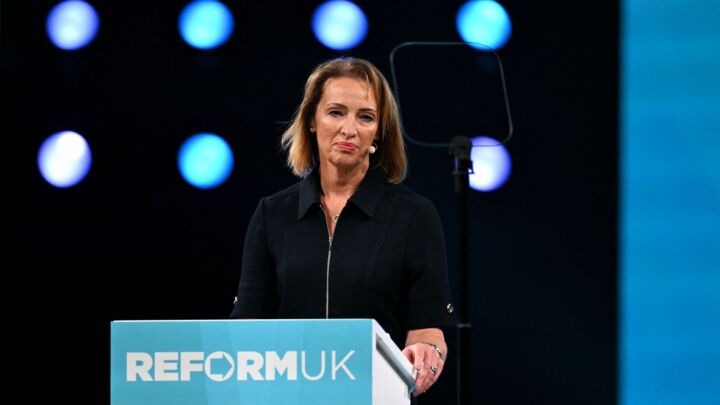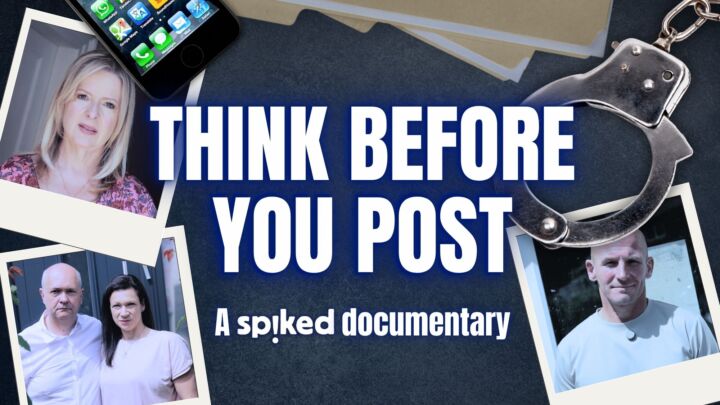Welfare: treating the public like children
US plans to stop welfare recipients buying certain things exposes the rot of welfarism.

Want unlimited, ad-free access? Become a spiked supporter.
Earlier this month, Kansas became the latest US state to propose strict spending restrictions on welfare recipients. Across the US, many state legislators are working to reduce welfare spending, arguing that restricting what they see as frivolous spending will dissuade people from staying on welfare or signing up in the first place.
The proposed Kansas legislation, better known as the HOPE Act (the Hope, Opportunity and Prosperity for Everyone Act), does not follow the more underhanded British nudge model of encouraging the poor and needy to spend their dole money responsibly. No, those Kansans don’t shy away from straightforward, instructive money-management advice. Under the Act, Kansans would be restricted from spending their welfare income (averaging around $300 per month per recipient) on things such as: going to the movies, swimming, going to strip joints, getting tattoos, going to the casino, buying jewellery and, wait for it, going on cruises. Darn all those pesky poor folks, living the high life while having lap dances by the poolside on their local cruise ship (in landlocked Kansas). Furthermore, Kansas welfare recipients will be restricted from withdrawing more than $25 per day in cash from an ATM, which, rather counter-productively, restricts their ability to spend frugally by purchasing items in cash (from yard sales, for example).
The HOPE Act mirrors other headline-grabbing welfare restrictions around the US, such as Missouri’s proposal to ban the purchase of steak and seafood with food stamps, or past New York proposals to prohibit the purchase of booze and smokes. But before dismissing these moves as petty political pointscoring at the expense of the lazy poor, there are some serious underlying concerns in the US welfare system that do need to be addressed.
First, we need to challenge the notion that the poor and needy are unable to take control of their own lives and finances. Treating Kansans like brainless scarecrows and telling them what they can or cannot spend their money on is patronising and paternalistic. Imposing legislation to control spending in this way reinforces the notion, prevalent on both sides of the political spectrum, that people today are unable to look after themselves. Such constant state meddling in blue-collar communities undermines a wider self-confidence in these communities’ ability to take control of and improve their lives. Whether it’s guidance on what people should be feeding their kids, or guidance on saving money, we should be challenging the idea that it is the state’s role to decide what is best for people.
It is a common argument on the conservative right that pushing people away from a reliance on welfare is what is needed to encourage them to go out and get a job. But this ignores the fact that many welfare recipients in the US are receiving welfare to supplement their main source of income. And here we come to a second concern. There has been much fanfare recently, especially on the left, about the ‘living wage’, with large US employers, such as Wal-Mart, Target and McDonald’s, deciding to increase the salaries of their workers. But this also fails to address the underlying problems of low pay. What all of these companies, which have traditionally paid employees close to minimum wage, have in common is a lack of productive capacity. Paying people $15 per hour to flip burgers or shift cheaply produced imported products is not going to solve America’s productivity crisis.
As Nancy McDermott wrote recently on spiked, the lack of concern about the mass deindustrialisation of the United States, along with the corresponding reduction in political and economic aspirations among US elites, has led to a drive for mediocrity. In the US, middle-class economics of thrift and sustainability are being championed in place of the unashamedly consumption- and progress-driven concept of the American Dream.
Few people, me included, would argue that a complete removal of the welfare safety net for the very poor, needy, elderly or disabled is desirable. But what we need today is an open and frank debate about the role of the state and the effect of welfarism on society. The discussion, often led by those on the political left, has become one of how best to help the poor survive in their current situation. But this is a debate of extremely low expectations, which only further engrains the idea that welfare is necessary. We need to raise expectations. We need to focus on economic growth, on productive economies and on new industries. In short, we must demand the best. We need to move the discussion beyond welfare and remind our elites that we can all be trusted to determine our own lives.
Neil Ross is US programme director at spiked.
You’ve read 3 free articles this month.
Support spiked and get unlimited access.
Help us hit our 1% target
spiked is funded by readers like you. It’s your generosity that keeps us fearless and independent.
Only 0.1% of our regular readers currently support spiked. If just 1% gave, we could grow our team – and step up the fight for free speech and democracy right when it matters most.
Join today from £5/month (£50/year) and get unlimited, ad-free access, bonus content, exclusive events and more – all while helping to keep spiked saying the unsayable.
Monthly support makes the biggest difference. Thank you.









Comments
Want to join the conversation?
Only spiked supporters and patrons, who donate regularly to us, can comment on our articles.